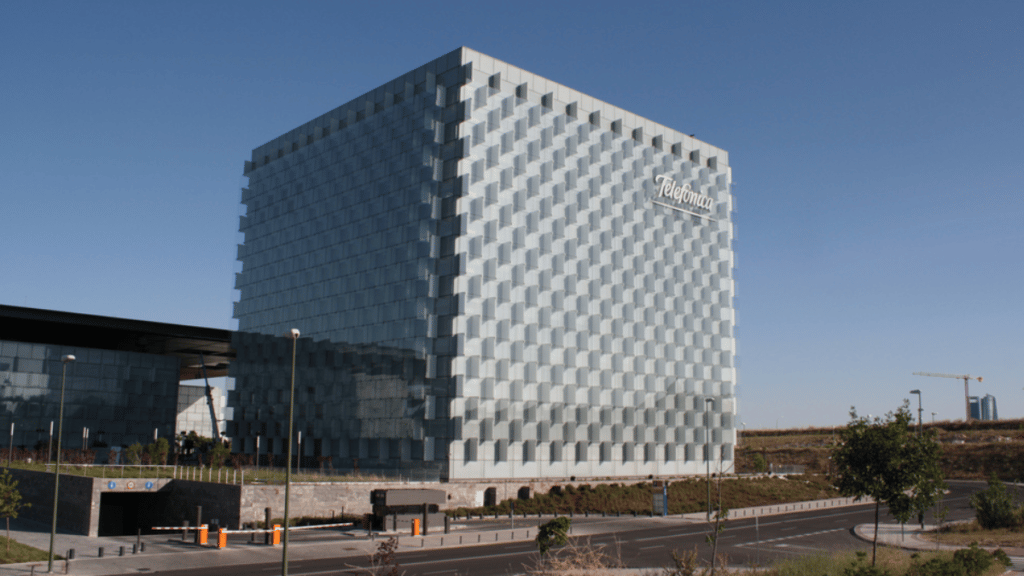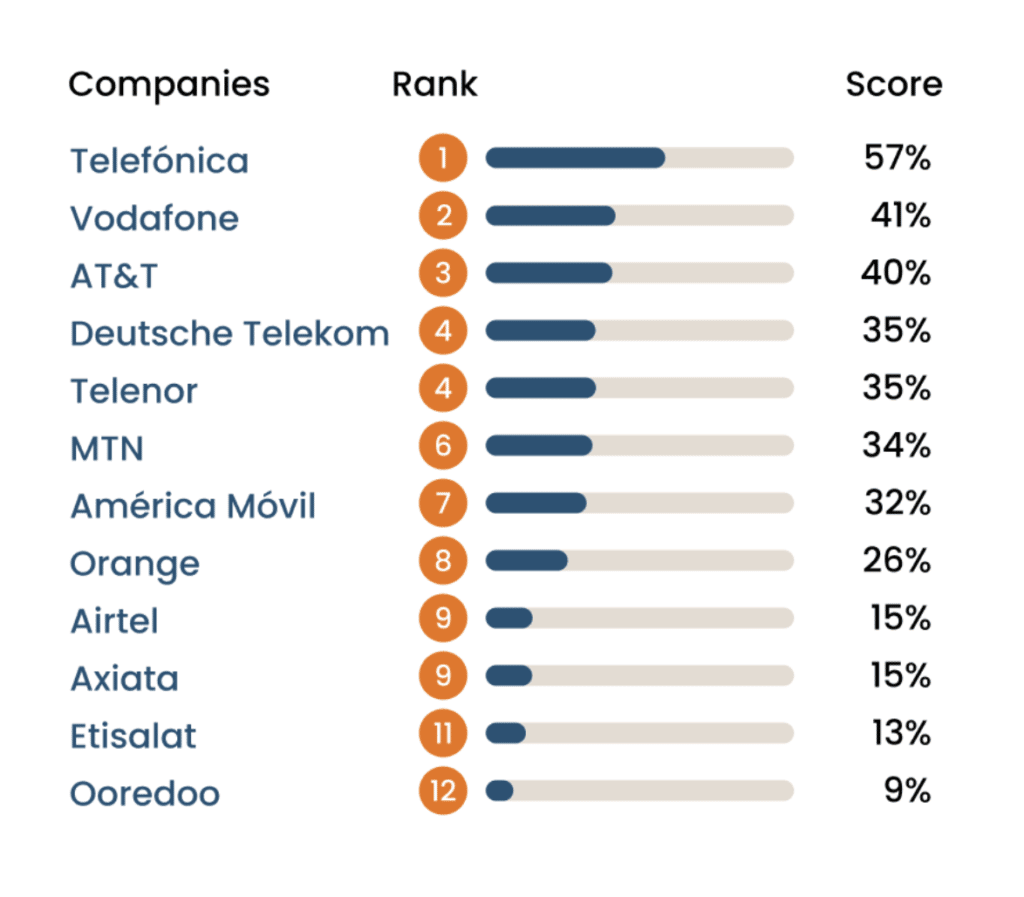Move Over, Platforms: Telecoms Deserve Scrutiny on Digital Rights, Says Scorecard
Justin Hendrix / Dec 8, 2022
Since 2016, an independent research program at the think tank New America called Ranking Digital Rights has evaluated the policies and practices of many of the world’s largest technology and telecom firms, producing a dataset that reveals their impact on human and digital rights. The grading curve is steep: in its 2022 rankings of tech platforms, for instance, none of the firms scored higher than 60%. The pre-Musk Twitter, at 56%, scored highest against measures related to governance, freedom of expression, and privacy.
Now, Ranking Digital Rights has applied a similar methodology specifically to a dozen telecommunications companies located in ten different countries, which it says "perpetuate the same digital rights harms while facing far less scrutiny." The ranking suggest that platforms-- such as Twitter, Google and Meta-- perform better on digital rights overall than telecoms.
"Despite featuring much less frequently in the media than many of their Big Tech counterparts, telcos actually wield far more power.," writes Jessica Dheere, Director of Ranking Digital Rights. "This power comes from three sources: 1) the services they provide, without which most of us could not conduct the business of our daily lives, 2) their complicated relationships with governments, which can compel them to implement government orders that violate human rights, and 3) the data they hold on people, including billing, demographic, location, and behavioral data, is more precise than that gathered by platforms, and therefore more valuable to advertisers and others who seek it. More power often means greater potential to violate human rights."
Of the companies that Ranking Digital Rights scrutinized, the Spanish telecom Telefónica performed best, "primarily due to expanded human rights risk assessments as well as disclosures noting that it does not comply with private requests for censorship or user information." Ooredoo, a Qatari company, comes in last. Ooredoo, like the next worst performer, United Arab Emirates firm Etisalet, discloses very little about its "policies and practices related to freedom of expression and privacy."

While Ranking Digital Rights acknowledges that the telecoms it scrutinized have in fact made some progress and do show signs of being responsive to critique, nevertheless "all but one company still received a failing score" this year. A key area of concern is around free expression and the transparency of policies that require the disclosure of government requests for user data. Weak privacy scores also drag down the class average: the telecoms "showed a systemic disregard for users' right to know about how their data is handled," of concern given the various forms of commercial and government surveillance such data can serve. There is little transparency in the sector, and nary a one of the ranked companies provides sufficient detail about how they collect user data or with whom it might be shared.
In the analysis, Ranking Digital Rights authors Nathalie Maréchal and Jie Zhang regard the lack of privacy safeguards as a problem across the board, including at AT&T, the only U.S. firm on the list.
The lack of privacy safeguards, combined with close ties between governments and telcos that are essential to the latter’s operations, mean that operators may end up aiding government-led violations of human rights. Since the Dobbs v. Jackson decision earlier this year reversing abortion rights in the U.S., state governments that have banned abortion can order companies, telcos and platforms alike, to provide information about their users’ geolocation, call records, and messaging data. They can also purchase it from data brokers to aid the prosecution of individuals who seek an abortion. American telco AT&T has so far not yet said how it would handle any such demands. Though AT&T has promised to provide financial support to employees who must travel for an abortion, the company has previously donated to politicians who supported abortion “trigger” laws, designed to outlaw abortions after the reversal of Roe.
If there is cause for optimism, it is in gains made by outside actors demanding transparency and better practices. In his analysis, Ranking Digital Rights Company and Investor Engagement Manager Jan Rydzak notes that "shareholders and civil society doubled down on our recommendations that companies publish transparency reports and improve due diligence. These were areas in which telcos improved the most."
Whether the pressure will result in significant movement on these measures in a year's time is to be seen- but at least there is a benchmark for comparison.
Authors
